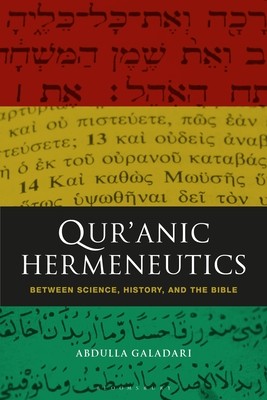
- We will send in 10–14 business days.
- Author: Abdulla Galadari
- Publisher: CONTINNUUM 3PL
- ISBN-10: 1350152102
- ISBN-13: 9781350152106
- Format: 15.6 x 23.4 x 1.5 cm, minkšti viršeliai
- Language: English
- SAVE -10% with code: EXTRA
Reviews
Description
This book is open access and available on www.bloomsburycollections.com.Qur'anic Hermeneuticsargues for the importance of understanding the polysemous nature of the words in the Qur'an and outlines a new method of Qur'anic exegesis called intertextual polysemy. By interweaving science, history and religious studies, Abdulla Galadari introduces a linguistic approach which draws on neuropsychology.
This book features examples of intertextual polysemy within the Qur'an, as well as between the Qur'an and the Bible. It provides examples that intimately engage with Christological concepts of the Gospels, in addition to examples of allegorical interpretation through inner-Qur'anic allusions. Galadari reveals how new creative insights are possible, and argues that the Qur'an did not come to denounce the Gospel-which is one of the stumbling blocks between Islam and Christianity-but only to interpret it in its own words.
EXTRA 10 % discount with code: EXTRA
The promotion ends in 21d.10:40:38
The discount code is valid when purchasing from 10 €. Discounts do not stack.
- Author: Abdulla Galadari
- Publisher: CONTINNUUM 3PL
- ISBN-10: 1350152102
- ISBN-13: 9781350152106
- Format: 15.6 x 23.4 x 1.5 cm, minkšti viršeliai
- Language: English English
Qur'anic Hermeneuticsargues for the importance of understanding the polysemous nature of the words in the Qur'an and outlines a new method of Qur'anic exegesis called intertextual polysemy. By interweaving science, history and religious studies, Abdulla Galadari introduces a linguistic approach which draws on neuropsychology.
This book features examples of intertextual polysemy within the Qur'an, as well as between the Qur'an and the Bible. It provides examples that intimately engage with Christological concepts of the Gospels, in addition to examples of allegorical interpretation through inner-Qur'anic allusions. Galadari reveals how new creative insights are possible, and argues that the Qur'an did not come to denounce the Gospel-which is one of the stumbling blocks between Islam and Christianity-but only to interpret it in its own words.


Reviews